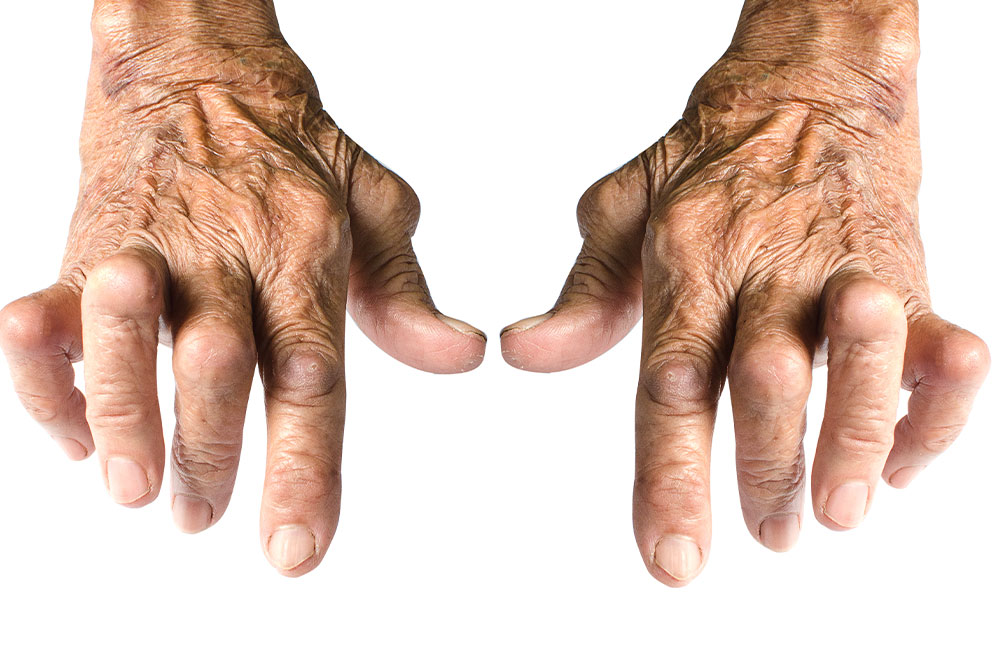11 warning signs of arthritis that must not be ignored

Mobility helps us perform our day-to-day activities effortlessly. Consequently, health conditions like arthritis can be debilitating and overwhelming, requiring immediate attention and continued care. Arthritis refers to inflammation and stiffness of the joints, which can aggravate with age. The two most common types of arthritis are osteoarthritis, involving the breakage of joint cartilage, and rheumatoid arthritis , where the joints swell due to compromised immunity. This article lists the warning signs and symptoms of arthritis:
Joint stiffness
Individuals with arthritis may experience stiffness in specific joints, such as knees, fingers, and arms. For example, simple movements such as bending one’s fingers may become excruciating due to stiffness. This symptom typically worsens in the mornings (particularly in the case of osteoarthritis) or after spells of inactivity.
Severe pain
Another common symptom of arthritis is severe pain in the joints associated with the condition. One may experience persistent throbbing pain accompanied by stiffness.
Flu-like symptoms
The inflammation caused by arthritis can lead to flu-like symptoms, such as fever and chills. Patients with arthritis typically experience low-grade fever, which lasts over an extended period. Some basic measures like cooling the room, staying hydrated, and having nutritious meals can help treat such flu-like symptoms.
Loss of appetite
Fatigue and weakness resulting from arthritis can lead to a loss of appetite, triggering further weakness. Sometimes, interventions for arthritis may also trigger appetite loss among patients.
Fatigue
Inflammation can lead to extreme tiredness and fatigue; moreover, inactivity due to pain in the joints can further aggravate the weakness. Fatigue is often one of the biggest challenges that patients with arthritis face.
Pain in the same joints on both sides
Often, persons with arthritis experience pain in the same joints on both sides of their bodies. For example, they may suffer from pain in both the knees or elbows.
Sleep issues
Studies have shown that 80% of individuals diagnosed with arthritis have sleep issues. Typically, the harrowing joint pain causes constant sleep disturbances, resulting in uneasiness and irritability.
Mental health issues
Living with arthritis can be physically and mentally challenging. Research suggests that adults with arthritis are more likely to have mental health issues like anxiety and depression than those not diagnosed with the condition. Proper care and professional guidance is necessary to ensure that such mental health issues do not affect patients’ treatment courses.
Joint tenderness
Inflammation among arthritis patients causes joint swelling, due to which the affected joints are typically tender to touch. Rheumatoid nodules, or firm lumps under the skin, may also develop in some cases.
Redness
Certain types of arthritis, such as rheumatoid arthritis and psoriatic arthritis, can affect the skin, causing redness in addition to swelling and pain in the joints.
Restricted movement
Perhaps the most common symptom of arthritis is the restriction of movement due to joint pain and stiffness. Such restrictions can cause them to depend on their family members or caretakers to move about outside as well as within the home. Fall-proofing the homes of patients with arthritis is essential to prevent accidents.
Besides following a systematic treatment course prescribed by one’s physician, a patient with arthritis must also make some active lifestyle changes, such as following a healthy meal plan, seeking help for daily chores, staying hydrated, and consulting a physiotherapist.
Besides following a systematic treatment course prescribed by one’s physician, a patient with arthritis must also make some lifestyle changes:
Follow a curated meal plan
A meal plan rich in foods containing essential nutrients, such as fatty fish, dark leafy greens, olive oil, citrus fruits, protein sources, and nuts, can help reduce inflammation and other arthritis symptoms. It is also important to avoid processed foods, added sugars, saturated fats, and deep-fried foods.
Maintain good posture
Good posture can go a long way in reducing pain and avoiding further repercussions of the condition. A physiotherapist can help one understand the right postures while sitting, standing, walking, etc.
Seek active assistance
Arthritis can hamper one’s ability to perform daily activities; therefore, seeking assistance from family members, friends, and professionals is necessary during the healing process. A supportive social circle can help one delegate tasks better and lead a stress-free existence.




